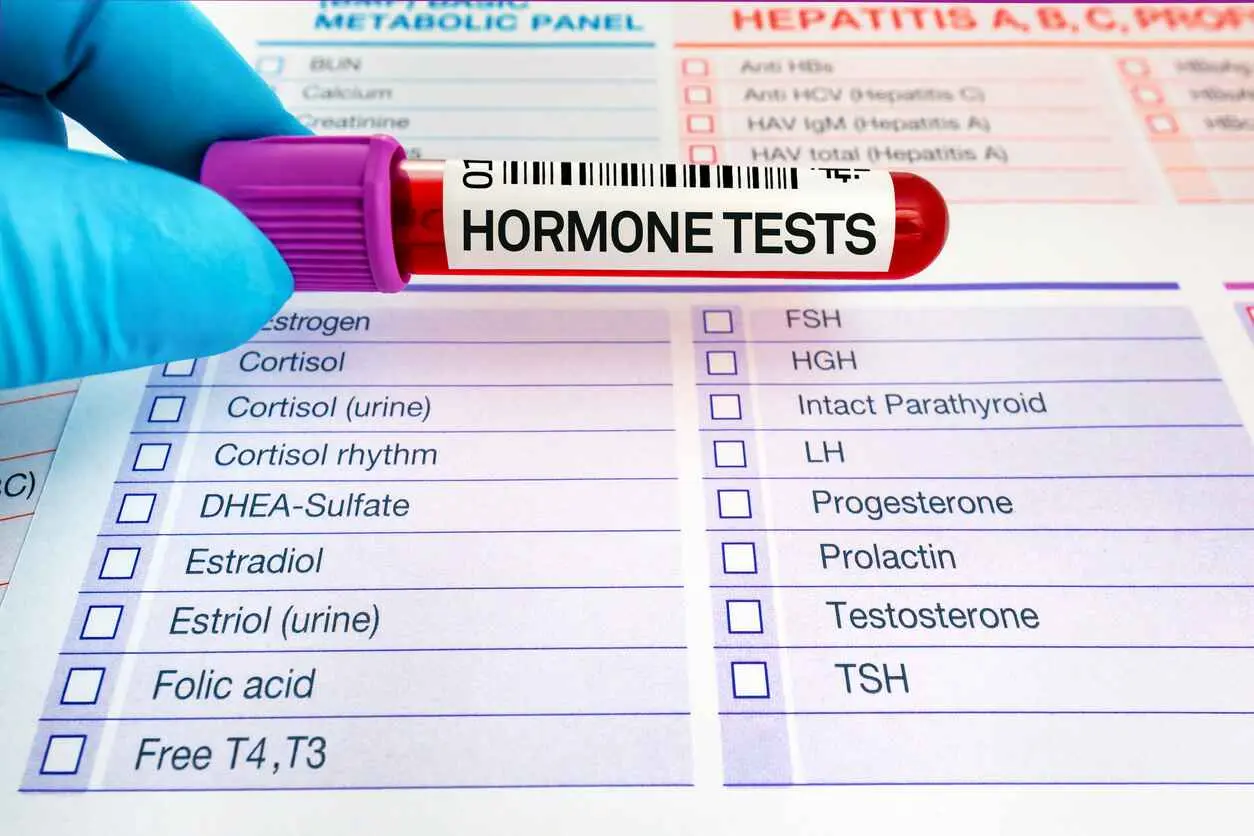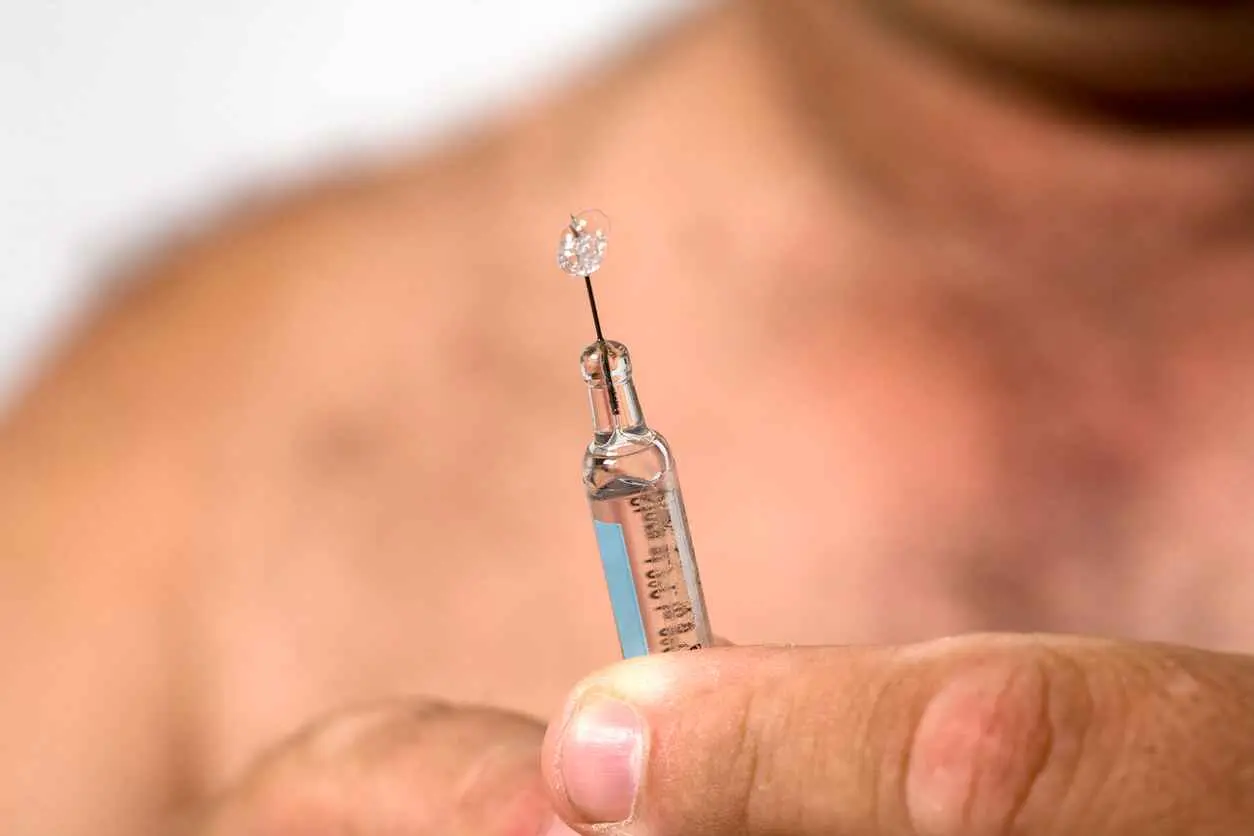
Why Is An Annual Hormone Blood Test Important?
Why Is An Annual Hormone Blood Test Important?
Staying healthy is not just about eating well or exercising. It is also about checking what is happening inside your body. One beneficial way to do this is by getting a hormone blood test once a year.
Hormones are like messengers that tell your body what to do. They help control your mood, energy, sleep, weight, and even how your body handles stress. When your hormones are not balanced, you might feel tired, sad, moody, or have trouble sleeping. But sometimes, these problems are not easy to notice right away.
That is why testing your hormones every year is important. It can help find problems early, before they become serious. A health clinic called Echelon Health says that hormone problems often start quietly, especially in people under 40. Regular testing gives you helpful information to stay healthy.
Some studies also show that a simple blood test can tell doctors about your hormone levels for many years. This is useful for spotting health risks like certain cancers early on.
In this blog, you will learn why a yearly hormone blood test is not just helpful, but also a smart way to take care of your future health.
Why Should You Get a Hormone Test Every Year?
Your body is constantly changing, even if you don’t notice it. Some changes, like growing taller or getting older, are easy to see. But other changes happen inside your body. A critical part that changes is your hormones.
Hormones are tiny messengers in your blood. They help control your energy, mood, sleep, growth, and much more. When your hormones are not balanced, your body might not work as well as it should. But you might not feel any different at first.
That’s why having a hormone blood test once a year is a brilliant idea. It helps you check that everything is working properly inside your body.
1. You Can Spot Problems Early
Some health problems, like tiredness, weight gain, or trouble sleeping, can be caused by hormone changes. But these problems often start slowly. A blood test can find signs of trouble before you feel unwell. This means you can make changes early and stay healthy for longer. Doctors at Nebraska Medicine say regular tests help people avoid more serious health issues later.
2. Hormones Change as You Get Older
As you grow up, your hormone levels change. This is normal. But things like stress, poor sleep, and eating poorly can also affect your hormones. By checking your hormones each year, you can see how your body is changing and what it needs at different ages.
3. You Might Have No Symptoms at All
Even if you feel fine, your hormones might not be balanced. A yearly test can help catch problems early, before you notice any signs. The Marion Gluck Clinic says this helps doctors give you better care based on your body’s real needs.
Why a Hormone Test Each Year Is Good for You
Having a hormone blood test once a year can help you stay healthy. Even if you feel fine, this simple test can show what is going on inside your body. Here are four big reasons why it is a good idea.
1. It Finds Problems Early
Sometimes your body gives minor signs when something is wrong. You might feel:
- Extra tired
- Sad or
- Gaining or losing
- Sleeping
- Changes in your period (if you're a girl)
These can all be caused by hormonal imbalances. A yearly blood test can find these problems early, even before you notice them. This means your doctor can help you fix the problem quickly.
2. You Get Advice That Fits You
Everyone is different. What works for one person might not work for someone else. A hormone test shows what your body needs. This helps your doctor give you the right advice, like:
- What foods to eat?
- What vitamins or medicines might you need?
- How to sleep or exercise better?
This is called a personal health plan. It is made just for you.
3. It Helps as You Grow Older
Your hormones change as you grow. When girls go through puberty or later in life go through menopause, hormone levels can go up or down. This can affect:
- Sleep
- Mood
- Memory
- Bones and muscles
Getting a test each year helps you and your doctor understand how your body is changing. You can then make healthy choices to stay strong and happy.
4. It Gives a Full Health Check
Hormone tests can also show other essential things, like:
- How much Vitamin D or iron do you have
- If your thyroid is working well
- If your body is stressed
This gives you a complete picture of your health. It’s a great way to catch little problems before they get worse.
Common Hormones and What They Do
Your body uses hormones to send messages and control how things work, like your energy, sleep, mood, and growth. A hormone blood test checks if these hormone levels are normal.
Here is a simple table to help you understand some of the most common hormones and what they do:
|
Hormone Name |
What It Does in the Body |
|
Oestrogen |
Helps with periods, mood, and bone strength. Important for girls and women. |
|
Progesterone |
Helps with periods and pregnancy. Works with oestrogen to balance hormones. |
|
FSH and LH |
Help control puberty and periods. It can show if a girl is getting close to menopause. |
|
Testosterone |
Helps build muscles, gives energy, and supports mood. Important for boys and girls. |
|
Thyroid hormones (TSH, T3, T4) |
Control how fast your body works. Affect your energy, weight, and how warm you feel. |
|
Cortisol |
The body’s stress hormone. Helps you deal with pressure and stay alert. |
|
DHEA-S |
Helps make other hormones. Supports mood, energy, and ageing. |
Monitor Testosterone Therapy
One of the first things you need to check is your testosterone levels. These tests measure how well your body uses its natural testosterone.
Understanding your testosterone levels is vital, especially as you age. Research indicates that men with low testosterone levels are 40 per cent more likely to experience falls. Moreover, low testosterone has been associated with increased mortality and heart disease. It can also affect your sex drive and muscle mass. Conversely, elevated testosterone levels can assist in muscle growth. These are compelling reasons to keep a check on your testosterone levels.
Your doctor can assess your testosterone levels in two ways. The total test measures the overall testosterone production in your body, providing a comprehensive overview. Combined with other hormone tests, this test offers a holistic view of your health. The free test, on the other hand, measures the amount of testosterone available in your body, helping to identify more subtle issues. Both these tests are valuable tools in maintaining your health.
If you have low testosterone levels, there are ways to fix the problem. This might involve lifestyle changes, like exercising more or changing your diet. Sometimes, doctors recommend testosterone replacement therapy (TRT). This could be an injection, an oral tablet, or a skin patch. Once your doctor knows about the problem, they will find the best treatment for you.
Estradiol
The next test is to check your estradiol levels. Estradiol is higher in women, but men can also produce it. Sometimes, abnormal estradiol levels can cause health problems. For example, it can lower the production of a chemical called AQP2, leading to water retention. This is common during menopause, when estrogen levels drop.
Your estrogen levels can also affect fertility. For some women, estradiol levels can explain abnormal vaginal bleeding. Low estrogen levels have been linked to vaginal atrophy, a condition that causes the thinning and inflammation of the vaginal walls.
A simple blood test for hormones is one of the best ways to determine estrogen levels. If you don't have enough, a doctor might prescribe a supplement, usually in pill form. They might also prescribe other medications or recommend hormone replacement therapy (HRT).
Prostate-Specific Antigen
Men should keep an eye on their Prostate-Specific Antigen (PSA) levels. PSA helps turn semen into a liquid, and some of it enters the bloodstream. At low levels, this isn't a problem.
However, high levels of PSA can cause health issues, including an increased risk of prostate cancer. A simple hormone test can help detect these cancers early. Early detection allows doctors to find cancer cells, often through a biopsy. Catching cancer early is crucial for successful treatment.
Elevated Hematocrits
The next test you should get measures your hematocrit levels. This checks the percentage of red blood cells in your body, essential for carrying oxygen. Getting a blood test is easy, and you don't need to do anything special to prepare. For most people, the levels should be between 30 and 50 percent.
High hematocrit levels can lead to health problems. Sometimes, you might have a condition called polycythemia vera, which causes your body to make too many red blood cells. If the count is over 50 percent, it can cause issues. You might need therapeutic phlebotomy to remove extra red blood cells from your body to fix this.
Monitoring For Erythrocytosis
Erythrocytosis is the condition of having too many red blood cells. The best way to diagnose it is by taking a blood sample to count the red cells.
There are two main reasons this condition might occur. A medical condition or a medication can cause it. Sometimes, it's genetic and linked to a problem in the bone marrow, causing the overproduction of red blood cells. Other times, it can be a side effect of certain medications.
There are a few ways to treat erythrocytosis. You might need therapeutic phlebotomy, which removes some blood. You may need to take tablets that slow down red blood cell production. You should be able to manage the symptoms effectively with proper detection and treatment.
DHT To Testosterone Ratios
The final hormone blood test measures your DHT levels, essential for men. DHT is linked to testosterone, so doctors consider both together. High DHT levels can cause acne and male pattern baldness, leading to a receding hairline.
Doctors might suggest lifestyle changes or prescribe DHT blockers, which reduce the production of DHT and lower high DHT levels.
Low DHT levels can also cause problems. They are linked to mental health issues like depression and cognitive decline in men. Low DHT can also affect the development of sexual organs and increase the risk of prostate cancer, especially during puberty or as you age.
You can try natural methods like exercising to increase DHT levels, which boosts production. Sometimes, doctors recommend testosterone replacement therapy (TRT), usually in the form of medication.
Frequently Asked Questions
What is a hormone blood test, and why do I need one every year
A hormone blood test checks the levels of hormones in your body to see if they are balanced. Getting tested every year helps spot changes early, even before symptoms start, making it easier to stay healthy and avoid more serious health issues later on.
How can a yearly hormone blood test improve my health?
A yearly hormone blood test can improve your health by helping doctors understand how your body is working inside. It shows if your hormones are too high or too low, which can affect your energy, mood, weight, sleep, and more. Regular testing gives you a better chance to stay on top of your wellness.
Which hormones are tested in a routine hormone blood test?
A routine hormone blood test usually checks hormones like oestrogen, progesterone, testosterone, thyroid hormones, cortisol, and sometimes vitamin D and insulin. These are key hormones that affect your daily health and long-term wellbeing, especially during puberty, adulthood, and ageing.
Is hormone testing only for women going through menopause?
No, hormone testing is not just for women in menopause. It’s useful for men and women of all ages to track changes caused by puberty, stress, ageing, or health conditions. Hormone blood testing for overall wellness is helpful at any stage of life.
Can I have a hormone imbalance without feeling any symptoms?
Yes, you can have a hormone imbalance even if you feel fine. Some hormone problems build up slowly without clear signs. That’s why getting a yearly hormone panel blood test is a smart way to catch silent changes before they cause symptoms.
How is a hormone blood test different from a regular blood test?
A hormone blood test looks at specific hormones in your blood, like thyroid, sex, and stress hormones, while regular blood tests often check things like cholesterol, blood sugar, or infection. Hormone tests give more profound insight into your body’s internal balance
and how it functions.
When is the best time to take a hormone test during the year?
The best time to take your hormone blood test is once a year, around the same month, so your doctor can compare your results easily. For girls and women, some hormone levels are best tested at a particular time in the menstrual cycle, usually days 19 to 21.
Are at-home hormone blood tests accurate and safe?
At-home hormone blood tests can be accurate if you follow the instructions carefully and use a trusted company. However, results should constantly be reviewed with a doctor. Annual hormone testing with medical support provides the most comprehensive view of your health.
Conclusion
Getting a hormone blood test once a year is a simple but powerful way to take care of your health. Hormones control so many vital parts of your body, like how you feel, how you sleep, your energy levels, and how you grow. Even if you feel fine, your hormone levels might be changing without you knowing.
A yearly test helps find problems early, before they become serious. It also gives your doctor the information they need to provide you with the best advice for your body. Whether you are growing up, dealing with stress, or getting older, hormone testing can help you stay strong, balanced, and healthy.
If you need help with testosterone replacement therapy (TRT) or want to learn more about it, we are here to assist you. Our experts can guide you through the process and answer any questions to ensure you receive the best care possible. Feel free to reach out for support and information.


